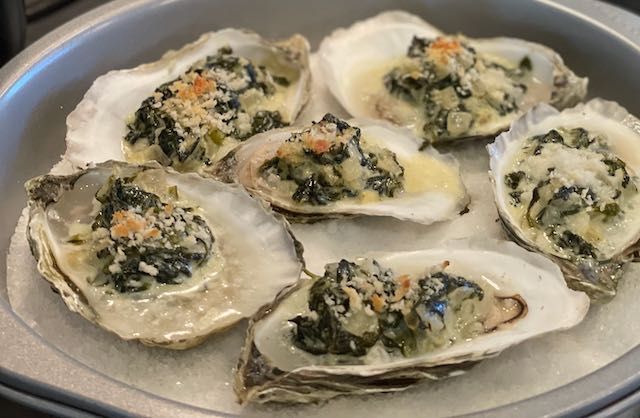NEGUS (n). is a term that originated from Amharic, the Ethio-Semitic language which currently serves as the working language of Ethiopia, and the second most-commonly spoken Semitic language in the world, after Arabic. From the Amharic n’gus “King” and derived from the Eritrean and northern Ethiopia Semitic root ngś, meaning “to reign”, the word was used as a title of the sovereign, supreme leader of Ethiopia. The title has subsequently been used to translate the words “king” or “emperor” in Biblical literature.
The Migration to Abyssinia is an episode in the early history of Islam. In approximately 615 AD, Muhammad’s first followers fled persecution by the Quraysh in Mecca and sought asylum with the Negus, the Aksum King, in Abyssinia, present-day Ethiopia, and Erit
Headquartered in Manassas Park, Virginia, Negus Beer Company has aspired to produce a product worthy of the namesake. Brewing and fermenting homemade beverages is a longstanding tradition throughout Africa, and varies greatly not only from region to region, but even from family to family reflecting the variety and distinctions of available ingredients. Traditional beers in Ethiopia include Tella, which can be made of barley, teff, sorghum, with maize or wheat sometimes used alternatively. Another traditional Ethiopian brew is Tej, a honey wine flavored with buckthorn. Legend has it that Tej was among the gifts that the Queen of Sheba presented to King Solomon.
Headquartered in Manassas Park, Virginia, Negus Beer Company has aspired to produce a product worthy of the namesake. Brewing and fermenting homemade beverages is a longstanding tradition throughout Africa, and varies greatly not only from region to region, but even from family to family reflecting the variety and distinctions of available ingredients. Traditional beers in Ethiopia include Tella, which can be made of barley, teff, sorghum, with maize or wheat sometimes used alternatively. Another traditional Ethiopian brew is Tej, a honey wine flavored with buckthorn. Legend has it that Tej was among the gifts that the Queen of Sheba presented to King Solomon.
With three varieties, Addis Teff Amber Ale and Mama’s Honey Tej and the Premium Craft Lager, Negus produces a lineup of beverages that includes renditions of traditional Ethiopian/Eritrean brews, and a modern everyday lager that is a welcome newcomer to today’s marketplace.
Teff is an ancient grain, (actually it’s a cereal grass whose fruit seeds are used as a grain – but let’s just all agree to call it a grain), that originated in the Horn of Africa in what is modern-day Ethiopian and Eritrea. If you’ve ever eaten Ethiopian food, that spongy, slightly sour, pancake-like bread that you tore and used to scoop up all that flavorful deliciousness, was called injera, and it was made from teff. Originating more than 3000 years ago, teff remains the most important commodity and among the most important staple crops in Ethiopia and Eritrea. High in mineral content and fiber, in addition to being gluten-free, the potential to become a global superfood akin to quinoa isn’t hard to imagine. And with such potential, comes the opportunity for exploitation.
The business of patenting agricultural products can be a ruthless one. In 2005 a partnership was formed between the Ethiopian Institute of Biodiversity Conservation and the newly formed Dutch company called Health and Performance Food International (HPFI). The arrangement was that Ethiopia would provide HPFI, run by agronomist Jans Roosjen, with a dozen strains of teff, which would then be turned into products for the European market. Proceeds would be divided between the two entities.
Well, two years prior in 2003, Jans Roosjen applied for a patent on teff claiming that his way of processing and storing teff flour was unique. This was of course later ruled by The Hague to be pure and total bullshit, – I mean it was subsequently proved false.
The European market wasn’t ready for teff and HPFI went bankrupt in 2009. However, while the partnership between HPFI and Ethiopia had ended, the patents that Roosjen obtained, had not. Worse still, Roosjen also had patents in Belgium, Italy, Germany, Austria, and Britain. Patents in Turkey, France, and Spain were also granted but later abandoned due to not maintaining maintenance fees. He continued marketing teff with new companies, except now Ethiopia had no claim to benefit from their native product. Eventually, Roosjen took another company using teff to court for patent infringement (of course he did) and it was then that the court ruled that his patents were in fact invalid. The deadline for his appeal expired in 2019 finalizing the ruling and reinstating Ethiopia’s rights to access teff-based markets in the Netherlands. However, no such ruling has been made to date in the other five countries with Roosjen’s patents. As it remains, Ethiopia has vowed to fight to regain their rights.
Philosopher Lisa Heldke coined the term “culinary colonialism” calling into consideration the distinction between culinary appreciation and appropriation. It warrants a look at how colonial expansion has affected culinary practices. In such instances, European countries exporting indigenous foods, rebrand them in ways that appeal to their western consumers. The process strips all cultural associations with the lands of origin, leaving just enough association intact such that the product feels “exotic” and exciting in the new western market. Agricultural patenting and it’s results have already produced some disturbing disputes.
Rooibos ((pronounced “roy-boss”– the Afrikaans word for “red bush”) tea is native to South Africa and only grows in the Cederberg Mountain range. The knowledge of the rooibos plant and cultivation expertise is unique to South Africa. The plant is truly part of South African identity, but that didn’t stop someone from registering a trademark in the USA and attempting to collect on companies selling products using the word “rooibos”. Only after a lengthy and expensive legal battle was South Africa successful in overturning the trademark registration, but also in obtaining status for rooibos as the first geographical indication (GI) for a South African product other than wine and spirits.
PepsiCo began producing potato chips in India in 1989. In 2019 the company sued four Indian farmers in the western state of Gujarat, for cultivating a potato variety that they say infringes on their patent on the potato. The company was seeking more than 10 million rupees ($142,840) each for the alleged infringement.
Food, the new battleground for cultural and social history.
Indentured Servant Alert: Pepsi supplies the potato variety to a group of farmers who in turn sell their produce to the company at a fixed price. After agreeing to amicably settle the lawsuit, PepsiCo the ever benevolent offered that the four farmers could join the group of growers who exclusively grow their proprietary variety of potato for its Lay’s potato chips. How nice, PepsiCo. How nice.
Just for kicks, Monsanto had similar legal disputes with cotton-seed farmers in India as well back in 2017 and subsequently withdrew from some businesses as a result. So apparently this is an increasingly common thing, and designing and patenting seeds is big business. A survey in the scientific journal Nature noted that three-quarters of plant DNA patents are held by private companies, and 50% of them are controlled by 14 multinational corporations. Patenting agriculture accompanied by subsequently having negative effects on the developing nations providing that agricultural product. Food, the new battleground for cultural and social history.
Brands and Purveyors
Arrowine & Cheese
4508 Lee Highway
Arlington, VA, 22207
Negus Beer Company – Manassas, Virginia
negusbeer.com Soul Mega – Washington DC
Sankofa Beer – Washington DC
https://www.sankofabeer.com/






